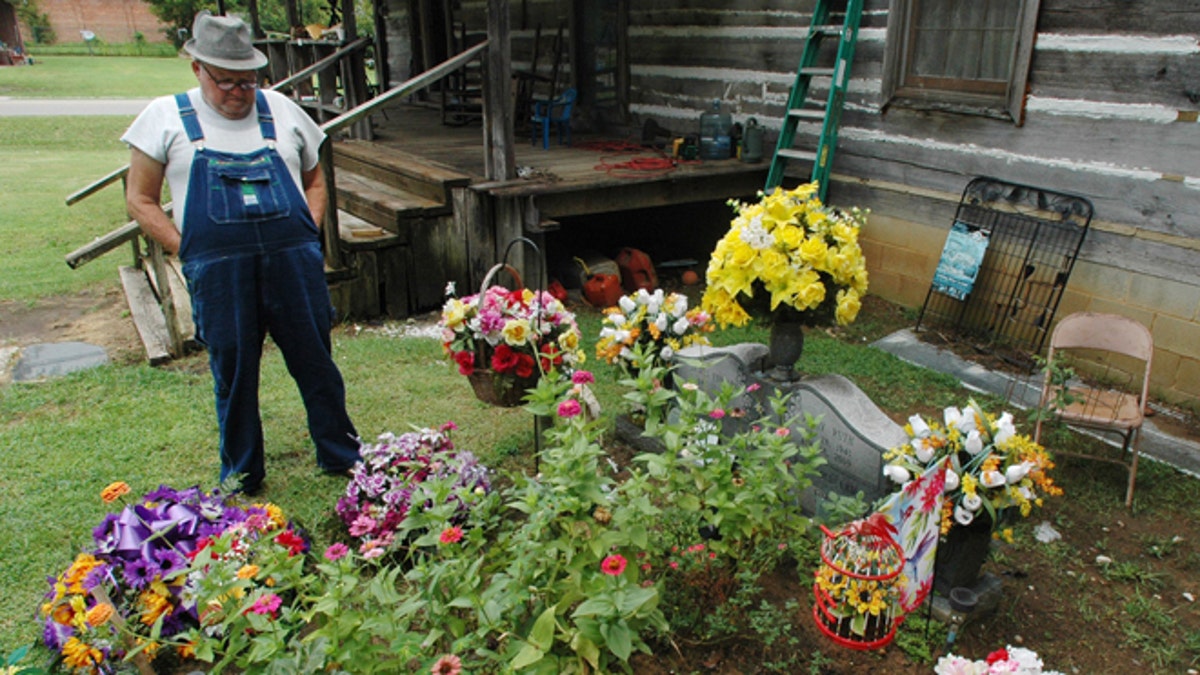
Aug. 10, 2012: In this file photo, James Davis, 73, stands over the grave of his wife, Patsy, in the front yard of the home they shared in Stevenson, Ala. (AP)
BIRMINGHAM, Ala. – An Alabama appeals court has refused to block an order requiring a homeowner to remove the body of his late wife from a grave in his front yard, but the legal wrangling continues.
The Alabama Court of Civil Appeals denied the request by homeowner James Davis. He buried his wife Patsy outside their home in Stevenson after her death in 2009, and the city is trying to make him move the grave.
The 73-year-old homeowner said he merely sought to honor his wife's request to remain on their lot in the northeastern Alabama city, where they lived for decades in a log house he built. She is buried in a vault and casket beside the front porch; the gray marble tombstone and flowers are visible from the street.
Davis claims the grave is a family burial plot and is legal under state law. The city contends the grave constitutes an illegal cemetery and has filed suit trying to make him move it.
After Davis appealed a circuit court ruling requiring him to remove the remains from the front yard, the appeals court on Tuesday refused his request to stop the order from being enforced. The court also has refused to lower the $10,000 bond set by a judge as a condition for stopping the removal.
While Davis said he doesn't have the money to post the bond, his lawyer, Tim Pittman, said Davis' children could post a property bond on his behalf. Pittman said he doesn't expect the city, meanwhile, to be able to remove the body immediately.
"The status quo will be maintained until the appeal is over," he said Wednesday.
City attorney Parker Edmiston said the town had again offered Davis a choice of compromises, including free graves for his wife and himself in Stevenson's cemetery.
But Pittman said his client won't settle.
Edmiston agreed that legal maneuvering would stall any immediate action. "It could be many months before anything happens," he said.
State health officials say family burial plots are not uncommon in Alabama, but officials in Stevenson worry about the precedent set by allowing a grave on a residential lot on one of the main streets through town.
The city of about 2,600 people says the law gives it a measure of control over where people bury their loved ones. City officials also cite concerns about appareance and long-term care of the grave, property values and the complaints of some neighbors living nearby.








































